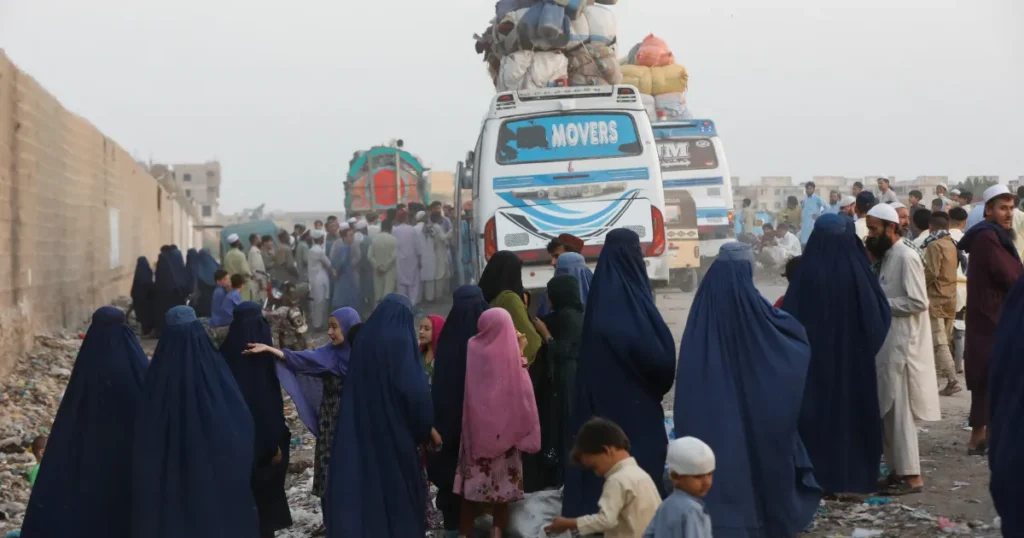Illegal Afghan Residents
As of July 15, 2024, the total number of illegal Afghan residents who have left Pakistan has reached 653,154.
This significant figure underscores the extensive and ongoing repatriation process that aims to address the issue of illegal residency in Pakistan while ensuring a structured and humane return for Afghan nationals.
From July 3 to July 15, 2024, a total of 15,727 Afghan residents departed from Pakistan, marking a notable continuation of this effort.
This recent group comprised 7,126 men, 4,926 women, and 3,675 children. These individuals represented 487 families, who were collectively transported back to Afghanistan in 510 vehicles.
This phase of the repatriation process highlights the logistical coordination involved in managing the safe and orderly return of a large number of people.
The repatriation efforts are part of a broader initiative by Pakistan to address the longstanding issue of illegal residency within its borders.
The process has been designed to be as structured and efficient as possible, ensuring that those returning to Afghanistan do so in a manner that respects their dignity and safety.
The use of a substantial number of vehicles to transport families back to Afghanistan indicates the scale and seriousness of the operation.
Pakistan’s commitment to facilitating this repatriation process is reflected in the continuous and steady nature of the efforts.
By maintaining a regular and organized schedule for departures, Pakistan aims to manage the repatriation in a way that minimizes disruption for the individuals involved and for the communities both in Pakistan and Afghanistan.
The structured approach to repatriation also emphasizes Pakistan’s dedication to addressing the complex challenges associated with illegal residency.
By providing a clear framework for the return of Afghan nationals, Pakistan is working to ensure that the process is both fair and efficient.
This effort is not only about addressing legal and administrative concerns but also about managing the humanitarian aspects of repatriation.
The ongoing repatriation process is a critical component of Pakistan’s broader strategy to manage migration and residency issues.
It reflects a balanced approach that seeks to uphold the rule of law while also respecting the rights and needs of those affected.
As the process continues, it will likely serve as an important case study in managing large-scale repatriation efforts, with valuable lessons for other countries facing similar challenges.


